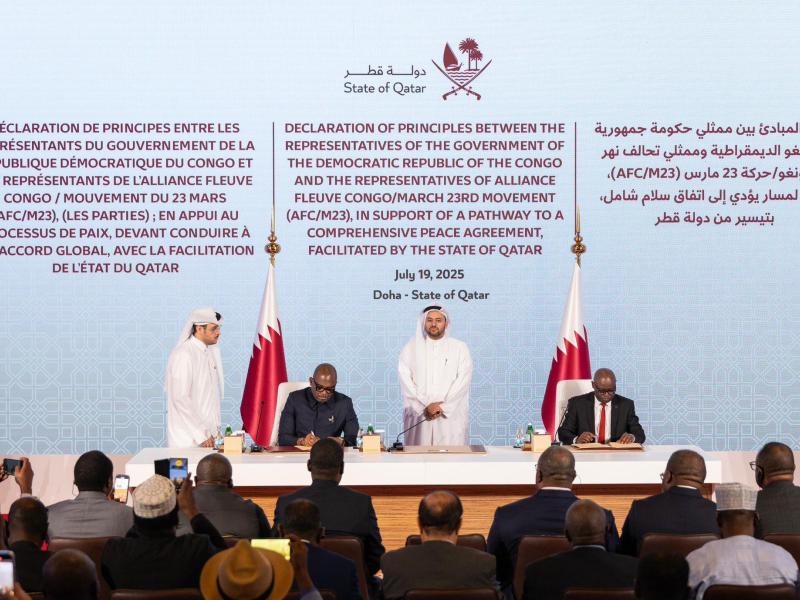
The fragile peace process between the Democratic Republic of Congo (DRC) and the rebel group AFC/M23 has hit a critical impasse in Doha, Qatar.
The leader of the AFC/M23 delegation, Benjamin Mbonimpa, has declared that the movement will not advance to the next phase of talks on a comprehensive peace agreement unless more than 700 detainees held by the Kinshasa government are released.
During a press conference held on July 25 in Goma, the capital of North Kivu province, Mbonimpa outlined the rebel movement’s position, emphasizing the release of prisoners as a non-negotiable prerequisite.
“There will be no Doha if there is no release of prisoners. This matter will not be addressed in phase 2. Before we go to Doha, all our prisoners, more than 700, must be released,” he said, underscoring that “we cannot move on to the next phase of the process if the previous one is not implemented.”
The AFC/M23, backed by Rwanda and controlling significant territory in North and South Kivu, has been engaged in tense negotiations mediated by Qatar following months of conflict.
Mbonimpa described confidence-building measures agreed upon by both parties as essential steps to restoring trust, with only two core issues—restoration of state authority and the return of displaced persons—reserved for later discussion.
“We all agreed without constraint to directly implement each confidence-building measure that will strengthen mutual trust,” he explained.
“These essential points must be implemented directly after the signing of the declaration of principles; we are not going to wait.”
The declaration of principles, signed after three months of intense dialogue, commits both sides to immediate implementation of agreed-upon measures no later than July 29, 2025, before reopening negotiations for a comprehensive peace agreement scheduled by mid-August.
Mbonimpa further clarified: “Before returning to Doha within the framework of the Peace Agreement, we will first begin to implement this declaration of principles before entering into direct negotiations, therefore finishing with stage one before starting the next stage.”
However, the peace process unfolds amid escalating violence in eastern Congo, where clashes between the rebel group, supported by Rwandan Defense Forces, and the Congolese army (FARDC) have intensified.
The government accuses the rebels of attempting to seize strategic towns such as Uvira, deepening fears of a wider conflict and worsening the humanitarian crisis affecting hundreds of thousands of displaced civilians.
As the deadline for implementing confidence measures approaches, all eyes remain on Doha, where the future of peace in the region hangs in the balance.



